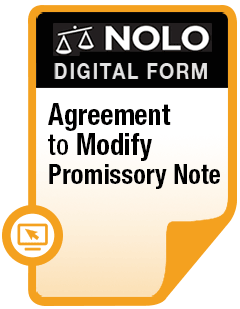If your car turns out to be a "lemon," you might be able to get a refund or a replacement vehicle. Here's how lemon laws for vehicles work.
An estimated 150,000 cars each year (or 1% of new vehicles) are "lemons"—cars with repeated, unfixable problems. Every state has enacted some type of lemon law to help consumers who get stuck with these defective cars.
To take advantage of these lemon laws for new vehicles, you need to know what qualifies as a lemon and how to get a refund or replacement car.
What Is a Lemon Law?
Lemon laws protect consumers from defective automobiles. All states have a lemon law. The Magnuson-Moss Warranty Act functions as a federal lemon law.
What Is a "Lemon"?
To qualify as a lemon under most state laws, the car must:
- have a substantial defect the warranty covers that occurred within a certain period of time or number of miles after you bought the car, and
- not be fixed after a reasonable number of repair attempts.
What Does the Lemon Law Cover?
In most states, the lemon law only applies to new cars, but a few states have lemon laws that also cover used cars. For example, New Jersey has a Lemon Law for used cars.
You should check the definition of a "new car" in your state's lemon law. (See "How to Find Your State's Lemon Law" below.) Some laws, for example, cover a car that was bought with a certain amount of mileage on the odometer. Other lemon laws apply to used cars that were still covered by the original warranty at the time of purchase.
How Does a Lemon Law Work?
In a lemon law case, you must first discover that your vehicle has a substantial defect. Then, you need to take it to the manufacturer or one of its authorized dealers for repair.
What Is a Substantial Defect for Purposes of the Lemon Law?
A "substantial defect" is a problem covered by the warranty that impairs the car's use, value, or safety, like faulty brakes or steering. Minor defects such as loose radio knobs and door handles don't meet the legal definition of "substantial defect."
As with most legal definitions, the line between a "minor" and a "substantial" defect isn't always clear. Some not-so-obvious conditions, such as defective paint jobs or horrible smells, have been found to be substantial defects.
In all states, the substantial defect must occur within a certain period of time or within a specific number of miles. The defect must not be caused by abuse.
What Is a Reasonable Number of Repair Attempts?
You must allow the dealer or manufacturer to make a "reasonable" number of attempts to fix a substantial problem before your car is considered to be a lemon.
Usually, you must meet one of the following standards to be protected under a state lemon law:
- If the defect is a serious safety defect—for example, involving brakes or steering—it must remain unfixed after one repair attempt.
- If the defect is not a serious safety defect, it must remain unfixed after three or four repair attempts, though the number varies by state.
- If the vehicle is in the shop for a specific number of days, usually 30 days in a one-year period, to fix one or more substantial warranty defects, it might fit the definition of a lemon.
What Is the Possible Compensation?
If your car meets the lemon law requirements for your state, you have the right to obtain a refund or replacement car from the manufacturer.
What Are the Steps to File a Claim?
Although the process for getting lemon law relief is different in each state, in all states, you must first notify the manufacturer of the defect. If you're not offered a satisfactory settlement, most states require you to go to arbitration before going to court.
Preparing for a Lemon Law Arbitration
Manufacturers use a number of different arbitration programs. In many cases, the manufacturer will select the program for you. If you're given the opportunity to choose, you'll probably do better if you choose a state consumer protection agency program rather than a manufacturer's in-house program or a private arbitration program.
Consumers who provide substantial documentation and evidence tend to do better than those with little evidence to support their claims. The types of documentation that can help include:
- brochures and ads about the vehicle (the manufacturer will likely have to live up to its claims)
- vehicle service records showing how often you took the car into the shop, and
- any other documents showing your attempts to get the dealer to repair your car.
It's important to take the process seriously and be as prepared as possible.
Find Out If Insurance Covers Your Vehicle
Insurance companies usually aren't responsible for compensating drivers for cars that turn out to be lemons. But if you purchased insurance for a vehicle that was a lemon, you can ask during any settlement negotiations, arbitration, or court proceedings that the manufacturer reimburse you for any insurance premiums you paid.
How to Find Your State's Lemon Law
To find your state's lemon law, visit the Autopedia and the Lemon Law America websites.
Getting More Information About Cars and Driving
To learn more about leasing or purchasing a used or new car, get Nolo's Encyclopedia of Everyday Law by the editors of Nolo. This helpful guide contains hundreds of answers to frequently asked legal questions about vehicles.
Should I Get a Lawyer for My Lemon Law Case?
Trying to resolve a lemon law case on your own is possible but can become challenging, especially if you have to go to arbitration or court. A consumer protection lawyer can help you with your claim, represent you in settlement talks, arbitration, or court, and increase your chances of success.
In addition, many states' lemon laws require the manufacturer to pay your attorneys' fees if you win. So, you might not have to worry about paying expensive lawyer fees. Consider talking to an attorney to learn more about how lemon law cases work in your state, including your chances of success, and be sure to ask how their compensation structure works.
It's usually in your best interest to contact a lawyer as soon as you think you might have a lemon.
Talk to a Lawyer
Need a lawyer? Start here.
How it Works
- Briefly tell us about your case
- Provide your contact information
- Choose attorneys to contact you
- Briefly tell us about your case
- Provide your contact information
- Choose attorneys to contact you



